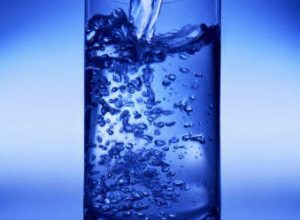Nutrition and Hydration Week
It’s Nutrition and Hydration Week! This annual campaign raises awareness and celebrates the importance of a balanced diet and hydration, particularly in health and social care settings. We all know that what we eat and drink can impact our health1. An active lifestyle is also important to maintain health and keep us feeling our best. Love Your Gut is here to help, with some tips to keep hydrated and eat well for your active lifestyle. Why not start now during Nutrition and Hydration Week!
Moving for your health
We hear about eating well and moving more for health but why is it so important that these go hand in hand?
Physical activity and exercise are important for cardiovascular fitness, as well as maintaining strong muscles and bones. When we exercise, our body uses mostly carbohydrates and fat, but also some protein, to generate energy for our muscles to move. We also lose water and electrolyte as we begin to sweat and breathe more heavily. Thus our reserves of nutrients and water fall when we exercise, and it is important to replenish them.
For moderate levels of activity meeting the recommended 150 minutes of exercise per week, following the Eatwell Guide will ensure that you get all of the nutrients you need to keep your body working at its best.
The Eatwell Guide
What does this look like?2
- Eat your 5 a day, aiming for 5 or more portions of fruit and vegetables per day to provide your body with vitamins, minerals. Fruit and vegetables are also a good source of fibre to support gut health.
- Starchy carbohydrates like pasta, potatoes, rice and bread should make up a third of the food we eat. Try opting for wholegrain which contributes to your fibre intake and gut health.
- Include dairy or calcium-fortified dairy alternatives for calcium to maintain strong bones.
- Include protein in every meal. This can be from beans, pulses, peas, lean cuts of meat, fish, eggs and dairy. Aim for two portions of fish per week, including one portion of oily fish as a source of omega-3s for brain health.
- Choose unsaturated oils and spreads for fat intake for heart health.
- Drink 6-8 glasses of fluids per day, which can include water, milk, lower sugar or sugar free drinks, including tea or coffee. Fruit juice and smoothies should be limited as they contain free sugars which can damage teeth.
Hydration
It’s important to remember that healthier drink choices are part of a balanced diet. If exercising regularly or simply during the warmer temperatures in summer, you’re likely to need to drink more than 8 glasses per day depending on thirst and sweat loss levels. How can you make good choices for better hydration?
- Drink water. It’s a healthy, cheap choice and doesn’t have to be boring. Add cucumber slices and mint leaves if you don’t like the taste of plain water or add your favourite no-added sugar squash flavour3.
- Milk is a hydrating option and great for post exercise with its protein, vitamin and mineral content.
- A limited amount of fruit and vegetable juice or smoothies (150ml glass per day), , can contribute to hydration. This counts towards one portion of your 5 a day. Consumption of sugary fizzy drinks is not advised and should be kept to a minimum.
- Tea and coffee are fine to drink as part of a balanced diet but keep in mind their caffeine content.
- Keep fluids nearby in a water bottle or a glass on your desk to reach for throughout the day.
- Avoid large amounts of alcohol as this can dehydrate the body. Always drinks water between alcoholic drinks to avoid dehydration4.
- Sports drinks can be useful for high-level endurance sports or for athletes but may be high in sugar. For those with moderate activity levels, opt for water, sugar free drinks or milk as a better option for hydration3.
More information
For more information about Nutrition and Hydration Week, visit https://nutritionandhydrationweek.co.uk/
References
- Eat Well, NHS https://www.nhs.uk/live-well/eat-well/
- Eatwell Guide https://www.nhs.uk/live-well/eat-well/the-eatwell-guide/
- Water, drinks and your health https://www.nhs.uk/live-well/eat-well/water-drinks-nutrition/
- Dehyration https://www.nhs.uk/conditions/dehydration/


